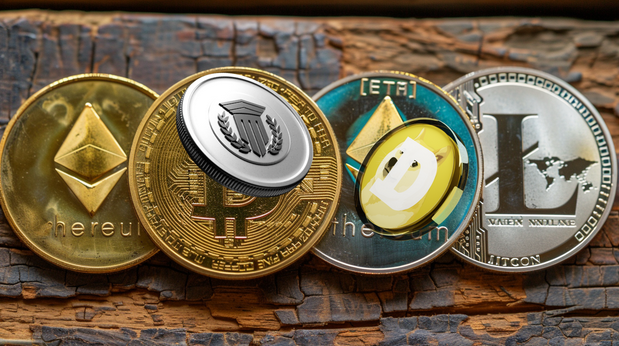TLDR
- Bitwise Solana Staking ETF and Canary’s Litecoin HBAR ETFs set to launch.
- Grayscale’s Solana fund expected to convert into an ETF later this week.
- These launches mark a shift from Bitcoin and Ethereum to altcoin ETFs.
- SEC approval pending for Grayscale’s Solana ETF conversion this week.
The crypto ETF market is expanding beyond Bitcoin and Ethereum with multiple altcoin-linked products scheduled to launch this week. The launch of Bitwise’s Solana Staking ETF, Canary’s Litecoin and HBAR ETFs, and Grayscale’s Solana fund marks a significant shift in the crypto investment landscape. These new products are set to provide investors with more opportunities to gain exposure to altcoins in a regulated manner.
New Crypto ETFs Enter the Market
According to Bloomberg’s senior ETF analyst Eric Balchunas, several altcoin-focused crypto ETFs are set to begin trading within days. The Bitwise Solana Staking ETF, Canary’s Litecoin ETF, and Canary’s HBAR ETF are all expected to go live soon. These new ETFs represent an expansion of the crypto ETF market, which has so far been dominated by Bitcoin and Ethereum-focused funds.
The development signals an increased interest in altcoins, as investors seek more diverse ways to enter the crypto market. The Solana Staking ETF from Bitwise is particularly notable as it will allow investors to stake Solana (SOL) tokens while still gaining exposure to the broader cryptocurrency market.
Grayscale’s Solana fund is also expected to convert into an ETF in the coming days, pending approval from the U.S. Securities and Exchange Commission (SEC). If no last-minute intervention occurs from the SEC, Grayscale’s move would further solidify Solana’s position in the rapidly evolving crypto ETF space.
Regulatory Scrutiny Remains a Concern
Despite the growing number of altcoin-linked crypto ETFs, regulatory hurdles remain a key concern. The SEC has yet to fully embrace crypto ETFs, and recent delays in approving Bitcoin ETFs demonstrate the challenges in gaining regulatory approval for such products.
In particular, the SEC’s review of the Grayscale Solana fund’s conversion into an ETF will be closely watched. Although no official statement has been made by the SEC, there is a possibility that the fund’s approval could face delays due to ongoing regulatory reviews.
The launch of these ETFs may serve as a test for the SEC’s approach to altcoin ETFs. As more products tied to altcoins like Solana, Litecoin, and HBAR hit the market, the SEC’s stance on altcoin-linked funds will become clearer.
Investor Opportunities and Market Reaction
The introduction of these altcoin-based ETFs is expected to open new investment opportunities for crypto enthusiasts. For investors, these ETFs offer a simpler and more regulated way to gain exposure to cryptocurrencies, especially altcoins that may not have the same level of recognition as Bitcoin or Ethereum.
The market is closely watching how these new funds perform once they are listed. If they are successful, other altcoins may follow suit, leading to a more diversified range of crypto ETFs in the future. These new ETFs also provide an alternative for those seeking to avoid direct exposure to the volatility associated with holding cryptocurrency assets.
The launch of crypto ETFs tied to altcoins could also attract institutional investors who have been hesitant to enter the market due to regulatory uncertainty and lack of product options. As these ETFs launch, they could play a key role in bringing crypto into the mainstream financial system.
The Road Ahead for Crypto ETFs
While the market for crypto ETFs tied to altcoins is still in its early stages, the upcoming launches suggest that there is growing demand for more diversity in crypto investment products. As more altcoin-focused ETFs enter the market, it will be important to monitor their performance and the regulatory response.
The launch of these altcoin ETFs may help shape the future of crypto investing by providing new ways for investors to gain exposure to the wider cryptocurrency ecosystem. However, much depends on the SEC’s stance and how well these products are received by investors.







